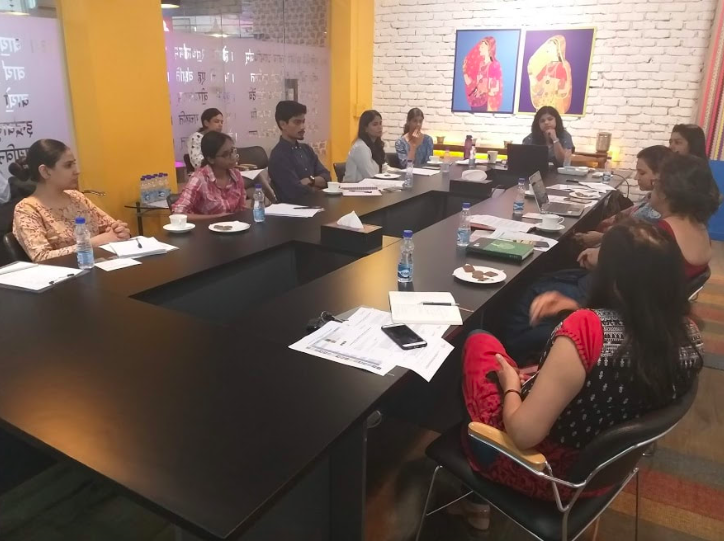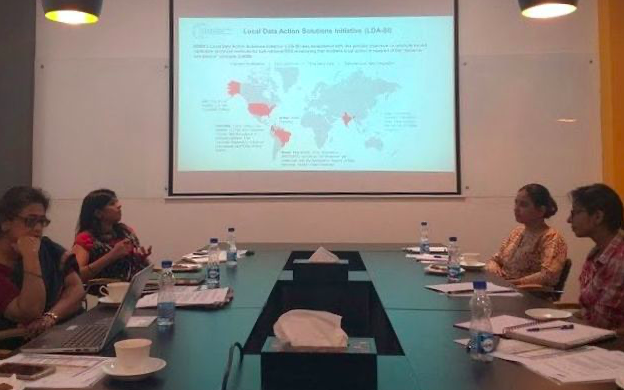|
Ruchi Varma, Program Manager - Urban Development, Community Systems Foundation With 70% of the global population residing in urban areas by 2050, the battle for a sustainable future will be won or lost in cities. Foreseen to be the second largest urban system in the world, India will be a major driver in this global effort, especially considering India will house nearly 60% of its population in cities by 2050. In this regard, it is critical to strengthen local governments response to the Agenda 2030 and New Urban Agenda to ensure ‘no one is left behind.’ In order for cities to utilize these frameworks, global goals must be made relevant at a local level. “Localizing” the 2030 Agenda enables cities to consider subnational contexts to define relevant goals and means of achievement. By setting goals and targets, determining means of implementation and measuring progress, localization demonstrates how the SDGs can guide local development policy efforts and how local and regional governments, in turn, can support the achievement of the SDGs through a bottom-up approach. To put localization in action, OpenCities Institute has been selected as a recipient of the UN SDSN Local Data Action Solutions Initiative (LDA-SI) micro grant. Through this grant CSF’s OCI has initiated work on a proof-of-concept package for SDG localization for the city of Patiala, Punjab, India. The micro grant project, ‘Valorizing the SDG Localization Process through Data Visualization,’ is aiming to set a precedent for using the SDGs to frame development priorities across all sectors in Indian cities. To demonstrate this localization effort, a model indicator framework utilizes a registry of global and local indicators to reflect municipal development objectives across various sectors, and will be hosted on a prototype data dashboard. Once the dashboard is fully operational, it will serve as a first step towards a full-scale SDG observatory. This will encourage the city of Patiala to define (through an inclusive process) the particular development challenges that business-as-usual planning and governance is ineffective in addressing. To understand how local leaders address key development challenges, OCI invited 15 urban experts for a roundtable meeting in New Delhi to validate the approach and discuss SDG localization for Indian cities. [1] The localization methodology under development showcases a means to link priorities and responsibilities with SDG goals and targets. This methodology was applied to four city priorities highlighted by the city of Patiala in a prior consultation. These priorities are solid waste management, air pollution, parking management and concerns of stray animals. All the priorities except the latter could be linked directly or indirectly with the SDGs. Feedback from this meeting focused on applicability and relevance of the draft methodology as well as funding mechanisms, technical capacities of resources in Urban Local Bodies (ULBs), availability of data and institutionalization of local data action. Considering India has a three tiered governance structure, and the mandate of urban development lies within state governments an institutional focus was highlighted as key for localisation efforts. This would help cities open more datasets in the public domain and would allow ULBs to harness real time information for evidence-based decision-making. The role of innovative data tools is instrumental, but equally important is the capacity to utilize the information. The work on local data action needs to be complemented with constant training and capacity building on SDGs so that cities can look at the landscape of data, what kind of analytics and what kind of insights to drive decision making and champion sustainability. The OCI Localization Methodology will be further enhanced through testing and refinement in other cities and through networking amongst cities to strengthen collaboration and ensure sustained efforts and the shared vision for development. The LDA-SI is aiming to provide an enabling environment for cities to start looking at localisation in a practical and positive direction. Read more about LDA-SI here. The methodology and the findings will be published in a web brief by December 2018. These included experts from UN-HABITAT India, the Institute of Social Sciences (ISS), the Transportation Research Injury Prevention Program (TRIPP) at Indian Institute of Technology Delhi, the Indian Council for Research in International Economic Relations (ICRIER), The Energy Resources Institute (TERI), the National Institute of Urban Affairs (NIUA), the TERI School of Advanced Sciences (TERI-SAS) and the ICLEI - South Asia.
1 Comment
15/7/2024 06:18:55
A very interesting narration with real time pictures and numbers. Thanks for your blog
Reply
Leave a Reply. |
Join the CSF data revolution webinar tomorrow!
COMMUNITY SYSTEMS FOUNDATION – EST 1963
+1 212 500 1335
data-driven sustainable development


